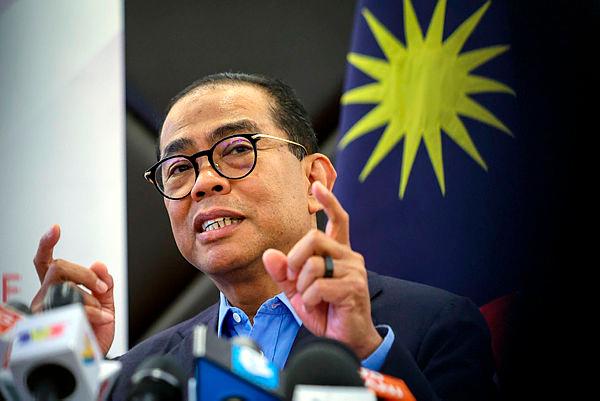KUALA LUMPUR: Defence forces in future would need to focus on new ‘enemies’ like cyber security, digital intelligence and electromagnetic defence platforms and not traditional threats, said Defence Minister Datuk Seri Mohamed Khaled Nordin.
Mohamed Khaled said many countries and major powers in defence have already started giving serious attention to such aspects in an open and innovative way.
“Hacking and cyber threats through activities like hacktivist are among risks that can give a big impact on the safety and security of a country.
“Moreover, hacktivist acts has the ability to cripple the economic activities of a country, administration of a government, medical system, transportation and many other serious impacts,” he said during a press conference after attending the launch of the Defence White Paper Mid-Term Review at Wisma Perwira ATM here today.
According to Mohamed Khaled, during the first quarter of the year, a study on hacking and stealing files from the Pentagon in USA, regarded as a major incident, was carried out involving up to 600,000 e-mails and gave a serious impact to about 2,500 government organisations.
“Last month alone, another incident which was similar was reported involving data related to the USA defence forces. These incidents are not new and will continue.
“In that context, our neighbouring country had already taken a forward step, including setting up a Digital and Intelligence Services as a domain and fourth new initiative under the Singapore Armed Forces in 2022,” he said.
Mohamed Khaled said the Malaysian Armed Forces (ATM) would also need to look at the different types of warfare that can pose threats to a country’s security, including cyber security attacks.
“We cannot be complacent because it would mean that in future we would need armed forces personnel who have the expertise to hack,” he said.
He added that a study was quickly needed since Singapore had already enhanced its armed forces system.
Also present was Armed Forces chief Jen Tan Sri Mohammad Ab Rahman.–Bernama









